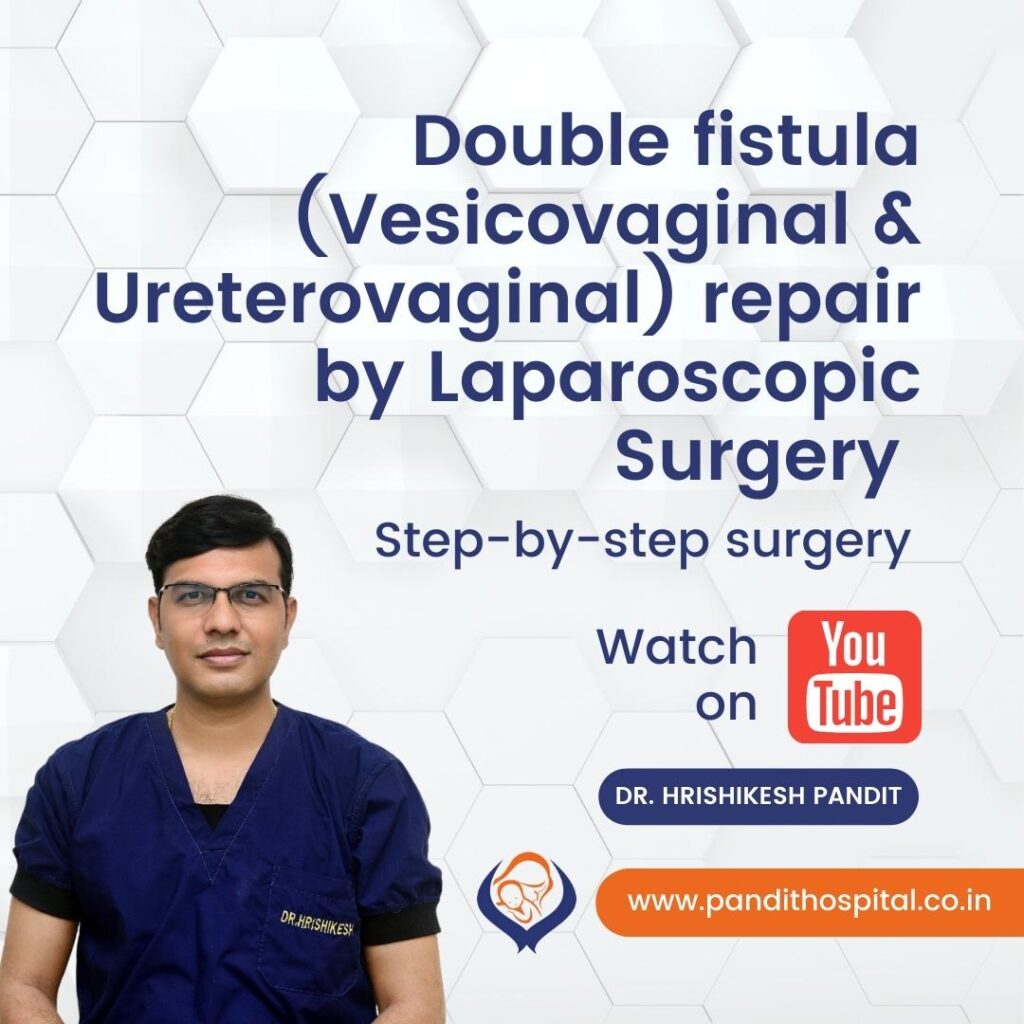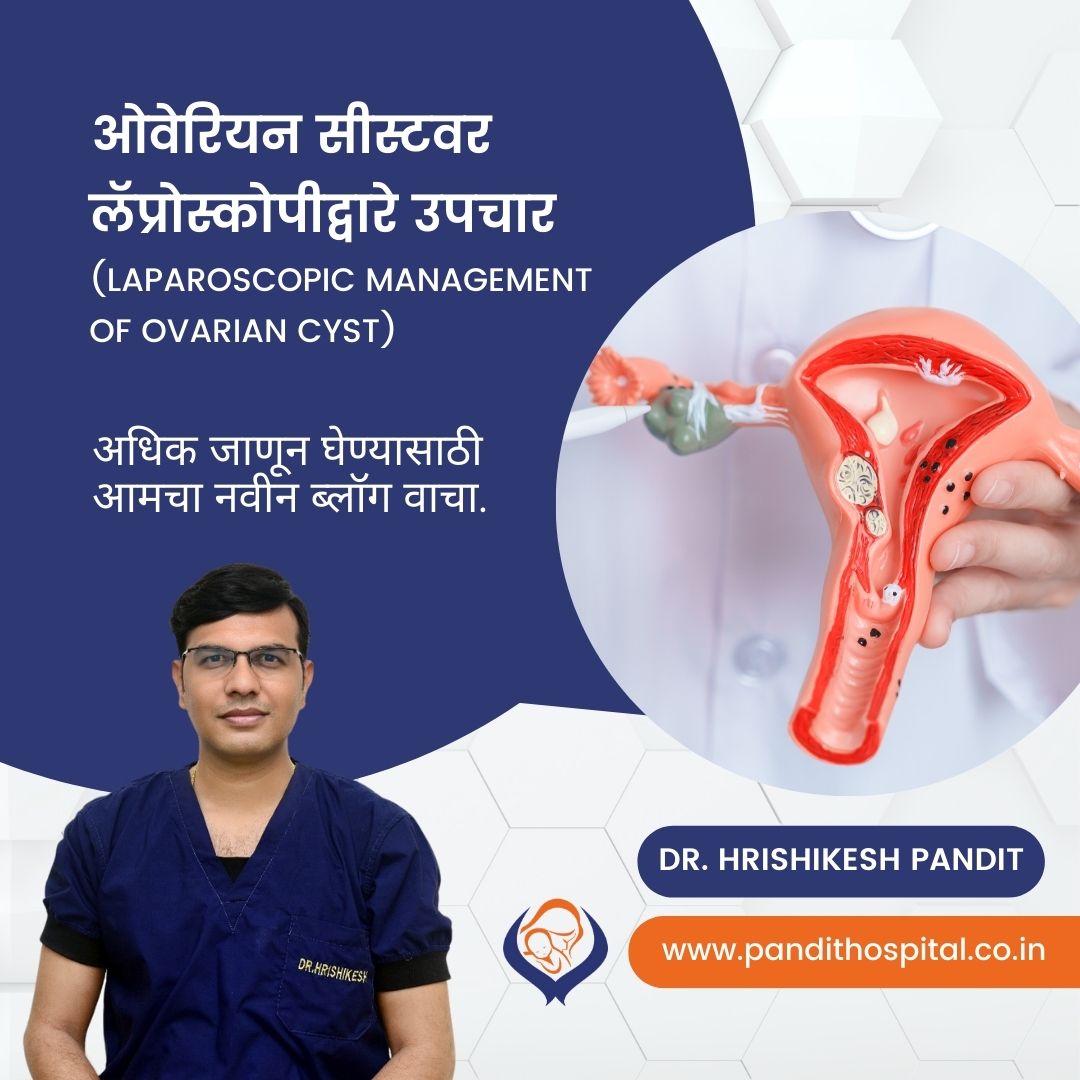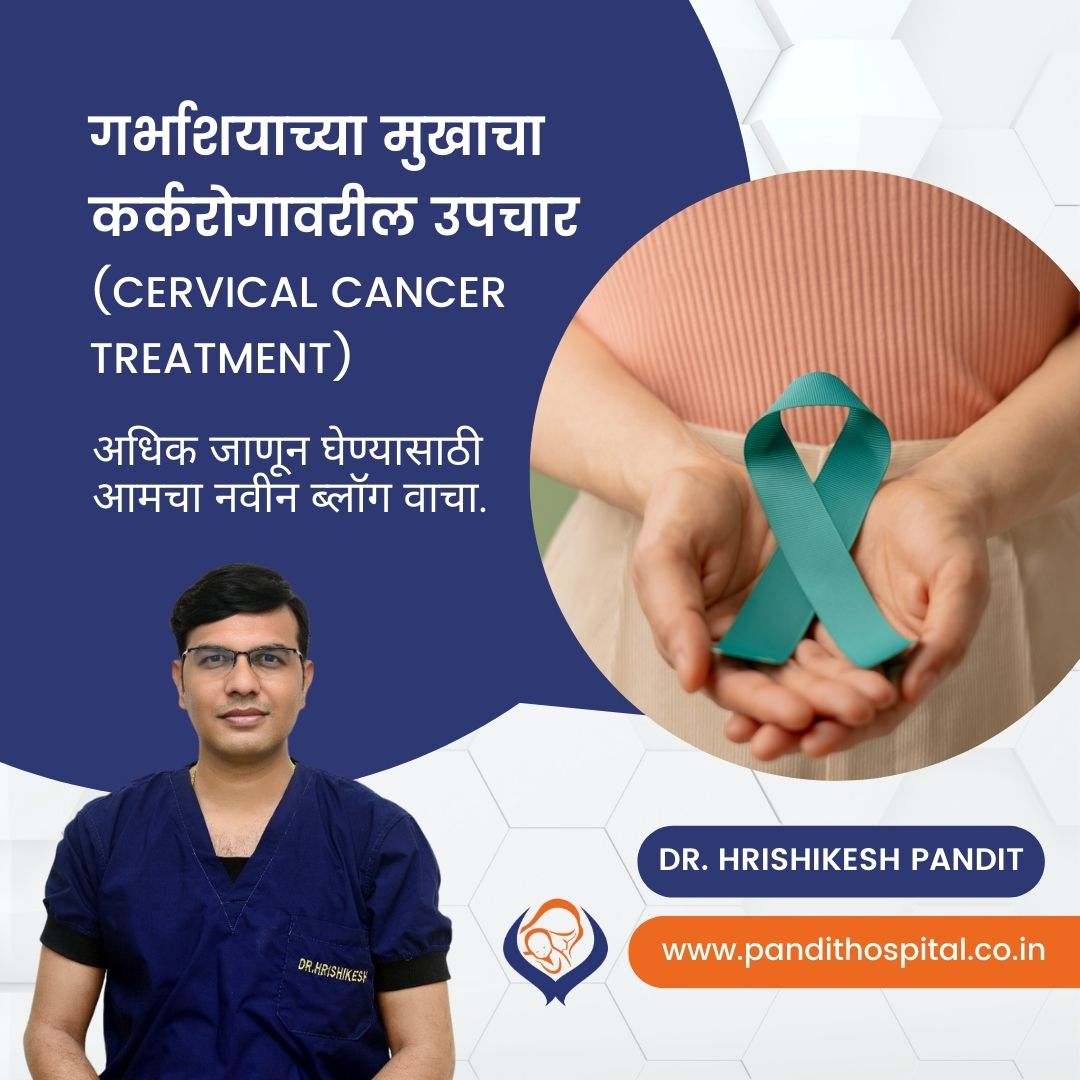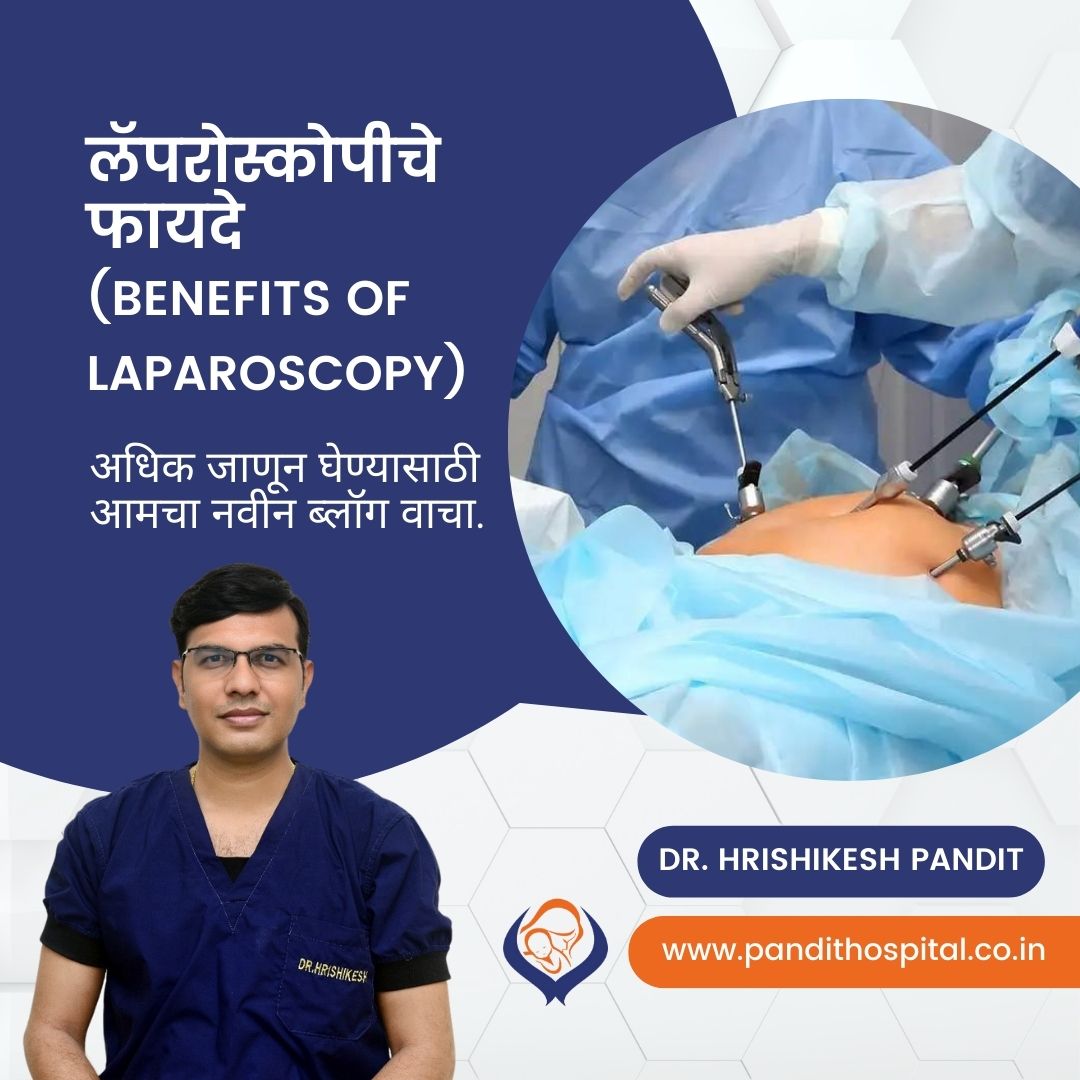Vesicovaginal fistula is a free communication between the urinary bladder and the vagina. The urine from the bladder freely flows into the vaginal vault, leading to total or continuous incontinence. Ureterovaginal fistula is a communication between the distal ureter and the vagina. Dr. Hrishikesh Pandit is one of the best Laparoscopic Gynecologist in India to provide management for such complicated gynecological issues through laparoscopy.
Recently Dr. Hrishikesh Pandit published one of his cases with
What is double fistula?
Vesicovaginal fistula is a free communication between the urinary bladder and the vagina. The urine from the bladder freely flows into the vaginal vault, leading to total or continuous incontinence. Ureterovaginal fistula is a communication between the distal ureter and the vagina. The urine from the ureter bypasses the bladder and flows into the vagina. This also results in total or continuous incontinence.
What are the causes for double fistula?
Obstetric trauma and delays in receiving obstetric care are the most common causes of urinary fistulae in medically underserved countries. In developed countries, more than 50% of such fistulae occur after hysterectomy for benign diseases such as uterine fibroids, menstrual dysfunction, and uterine prolapse.
The acute onset of urinary incontinence occurring shortly after a hysterectomy should raise suspicions for vesicovaginal or ureterovaginal fistulae. If vesicovaginal or ureterovaginal fistula is suspected, as an immediate step, collection of vaginal fluid should be encouraged so that it can be sent for fluid creatinine measurement; a fluid creatinine level significantly higher than that of a simultaneous serum creatinine level confirms that the fluid is urine. In addition, a methylene blue dye test is a reliable way to establish the diagnosis of vesicovaginal fistula. [3] Cystoscopy with bilateral retrograde pyelogram is necessary for the diagnosis and differentiation between ureterovaginal and vesicovaginal fistula. A double dye test may also be useful for differentiating vesicovaginal and ureterovaginal fistulae.
What is the treatment for double fistulae?
Medical management is not enough to correct any type of fistula. For surgical correction of vesicovaginal fistula, the transabdominal and transvaginal approaches are common.
Now with the use of 3D laparoscopy technology, Dr. Hrishikesh pandit provides treatment for double fistulae by laparoscopic surgery.
Fistulae can lead to significant impacts on mental health, and repair has been demonstrated to greatly improve both anxiety and depression scales. Fistula can interfere with sexual function, as women may fear urinary leakage during intercourse or pain with intercourse. Although repair generally improves sexual function.
At Pandit Hospital, Ahmednagar; Dr. Hrishikesh Pandit has the experience of more than 5000 laparoscopic surgeries and has best 3D laparoscopy technology at his centre to provide best results.
Dr. Hrishikesh Pandit is the pioneer pf 3D laparoscopy technique in Ahmednagar. His experience and skill makes him one of the best laparoscopic surgeon in India.
At Pandit Hospital, you are in safe hands!
To consult Dr. Hrishikesh Pandit, Click Below,
Pandit Hospital – Best Maternity care center in Ahmednagar
LET’S SEE OUR INTRO VIDEO
At Pandit Hospital, we provide all the maternity services from antenatal to postnatal period under one roof
Let's Connect!!
0241-2441717 / 0241-2442344
About author:
Dr. Hrishikesh Pandit:
Dr. Hrishikesh Pandit is one of the best obstetrician and gynecologist in India. He is also a well-renowned Laparoscopic surgeon. He obtained his MS (Ob Gyn) degree from the prestigious Pravara Institute of Medical Sciences. He has also done fellowship and diploma courses in laparoscopic surgeries and cancer treatment from Tata Hospital and Keil University, Germany. His surgical cases, papers and videos has been chosen in many international forums of gynecology.
At Pandit Hospital, we are always working hard to provide its patients with the highest level of medical innovation and patient care. With the aim of delivering complete maternity & gynecological care under one roof with the help of all contemporary amenities and cutting-edge medical equipment. Dr. Hrishikesh Pandit has a vision to bring the best of facilities regarding laparoscopy surgeries in the city of Ahmednagar. He is the pioneer of 3D Laparoscopy technology is Ahmednagar.
Latest Articles
Dr. Hrishikesh Pandit is one of the best laparoscopy surgeons in India. His determination to bring 3D Laparoscopy technology to Ahmednagar has eventually helped so many patients. Read the latest articles by Dr. Hrishikesh Pandit on Gynecology, gastric issues, and health tips for mothers during pregnancy.
Discover comprehensive ovarian cyst treatments at Pandit Hospital in Ahmednagar, Maharashtra, led by 3D Laparoscopic Surgeon Dr. Hrishikesh Pandit. Learn about types, symptoms, and both surgical and non-surgical treatments. Best ovarian cyst removal hospital in India.
गर्भाशयाच्या मुखाचा कर्करोग हा महिलांमध्ये होणारा दुसरा सर्वात गंभीर कॅन्सर आहे. वयाच्या 35 व्या वर्षानंतर या आजाराचा धोका फार वाढतो. गर्भाशयाच्या कर्करोगावर लॅपरोस्कोपी (दुर्बिणीने) शस्त्रक्रियेद्वारे उपचार केले जाऊ शकतात.
लॅपरोस्कोपिक शस्त्रक्रियेचे अनेक फायदे आहेत ✔ कमी वेदना ✔ कमी रक्तस्त्राव ✔ रुग्णालयात किमान मुक्काम ✔ जलद रिकव्हरी ✔ कमी कॉम्प्लिकेशन्स ✔ कमी टाके ✔अंतर्गत अवयवांना कमी इजा. Benefits of laparoscopy &Marathi)
FAQ
You should consult a doctor during the first 6 to 8 weeks of your pregnancy, or when your period is 2 to 4 weeks late.
If your contractions are 5 minutes apart, lasting for 1 minute, for 1 hour or longer, it’s time to head to the hospital.
Doctors recommend an infertility evaluation if you have not gotten pregnant after 1 year of having regular sexual intercourse without using birth control. If you are older than 35, an evaluation is recommended after 6 months of trying.
Yes, You can. But most babies need 39 weeks to develop fully. Induced or planned delivery before that time—without a valid medical reason—is not in the best interest of the baby or the mother. After 39 weeks you can plan delivery.
Women who are 21 to 29 should have a Pap test alone every 3 years. HPV testing alone can be considered for women who are 25 to 29, but Pap tests are preferred. Women who are 30 to 65 have three options for testing. They can have a Pap test and an HPV test (co-testing) every 5 years. They can have a Pap test alone every 3 years. Or they can have HPV testing alone every 5 years.
Laparoscopic hysterectomy is a safe and suitable procedure for chosen patients. It affords patients advantages like less peri-operative morbidity, better life quality, shorter hospitalization time, and faster return to activity.
Schedule a doctor’s visit if you have: Greenish, yellowish, thick or cheesy vaginal discharge; Strong vaginal odor; Redness, itching, burning or irritation of your vagina or the area of skin that surrounds the vagina and urethra (vulva); Bleeding or spotting unrelated to your period.
Painless delivery can be achieved using a form of regional anesthesia that provides pain relief during natural labor. Epidural anesthesia is administered through an injection on the lower back of the mother. The drug takes about 10-15 minutes to take effect.
Even in severe cases of endometriosis, most can be treated with laparoscopic surgery. In laparoscopic surgery, your surgeon inserts a slender viewing instrument (laparoscope) through a small incision near your navel and inserts instruments to remove endometrial tissue through another small incision.
The HPV vaccine is recommended for routine vaccination at the age of 11 or 12 years. (Vaccination can be started at age 9.) It is also recommended that vaccination for everyone through age 26 years if not adequately vaccinated when younger. HPV vaccination is given as a series of either two or three doses, depending on age at initial vaccination.





